IBAP - Developing Capabilities to Conduct Parent Engagement Activities

To create enriching learning experiences for children, ECDA Fellow and Principal of Creative O Preschoolers’ Bay, Ms Tan Beng Luan, and ECDA Fellow and Senior Lecturer at the National Institute of Early Childhood Development (NIEC), Ms Christine Soo, inspire centre leaders to incorporate parent engagement activities through their Inquiry-Based Action Plan (IBAP) project.

Parent engagement activities help establish trust and bridge the communication gap between parents and early childhood educators. Ms Tan Beng Luan and Ms Christine Soo have been integrating such activities into their teaching curriculum for many years as they recognise the importance of forging strong home-centre partnerships, which ultimately benefit everyone — teachers, parents and children.
Now, the two ECDA Fellows are using their experience and knowledge accumulated over the years to guide fellow centre leaders in conducting effective parent engagement activities through their IBAP project, “Developing Capabilities to Conduct Parent Engagement Activities”.

“When children see that the relationship between the educators and parents are supportive, respectful, nurturing and communicative, they benefit from a conducive learning environment, where their social development is modelled on healthy relationships,” says Christine.
IMPROVING UNDERSTANDING BETWEEN PARENTS AND EDUCATORS
Beng Luan and Christine adopt the Epstein’s Framework of Six Types of Parent Involvement for the IBAP project as a guide to identify and evaluate the various types of parent engagement activities that centre leaders can implement. The framework was developed by Dr Joyce Epstein of Johns Hopkins University for primary schools, but adapted by the ECDA Fellows for use by local preschools.

According to Beng Luan, their IBAP focuses on areas where parent engagement can be further improved in the local preschool context, such as increasing parental involvement in school and helping parents better understand the preschools’ philosophies. This is because parents may not see the rationale behind certain preschool practices, which often lead to misunderstandings between them and the educators. By getting parents involved and explaining to them the meaning behind particular practices, parents would feel more connected to the preschools.
“Parents often have many doubts and questions about the preschool as they want to ensure that this is the right place for their child. As a centre leader, the more you help parents understand the preschool’s philosophy, the better and easier it will be to manage your preschool,” Beng Luan adds.
These forms of parent engagement are different from the ongoing communication with parents that most Singapore preschools are already doing. It allows centre leaders to cultivate a deeper level of parental involvement and commitment in their children’s learning and development.
“It is important for centre leaders to understand the importance of building parent engagement capabilities in their educators…Through mentoring and open communication, we help centre leaders gain the confidence to conduct parent engagement activities that address pressing issues,” Christine mentioned.
CO-CREATING ACTIVITIES WITH THE ECDA FELLOWS
During the IBAP, apart from conducting workshops on the importance of parent engagement and Epstein’s Framework, the ECDA Fellows go beyond their role of facilitators to provide personal coaching for their participants in planning and implementing actual parent engagement activities at their respective preschools.
As Christine elaborates, “The co-creation/co-construction approach leverages our knowledge and experiences in the Early Childhood sector. We help the participants scope their intended parent engagement activities. It is to ensure that the duration is realistic and parents are sufficiently engaged when acquiring pedagogy skills and knowledge to support their children’s learning and development. We discuss the programme in detail so that the leader and her team will be prepared to handle possible challenges or hiccups.”
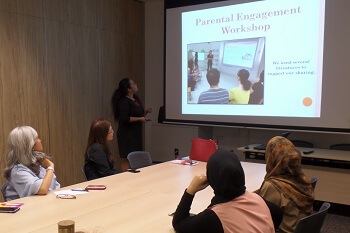
Beng Luan noted that parents’ concerns vary across different preschools. As such, they encourage each IBAP participant to implement engagement activities that are suitable and customised for parents from their own preschools. The ECDA Fellows also understand that it can be challenging at times for IBAP participants to implement their first parent engagement activity. Hence, they offer their support and guidance throughout the participants’ IBAP journey in the form of emails, texts, and sometimes even personally travelling down to the participants’ preschools to support their activities.
Ms Melissa Tan, a past IBAP participant and Principal of PCF Sparkletots @ Chong Pang Blk 107, shared about the ECDA Fellows’ dedication and willingness to guide the participants. "ECDA Fellows Christine and Beng Luan touched base with us regularly through email to find out how we were executing our parent engagement workshops. Beng Luan even came to our centre to share with us how she conducts reading workshops with the parents in her centre… She truly inspired all my teachers.”
PARENT ENGAGEMENT IN PRESCHOOLS
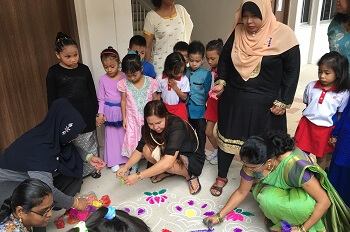 |
 |
Melissa had already been conducting parent engagement activities in school before she joined the IBAP project. She was empowered with the skills to help parents gain knowledge on how they can engage their children at home after attending the IBAP training. She proceeded to implement creative ideas to involve parents in their children’s learning at the centre. Her pilot engagement activity during the IBAP, a Racial Harmony Day celebration, proved to be a huge success. Both parents and educators worked closely together on the stage activities for the celebration, with a higher level of involvement amongst parents.

Since then, Melissa and her teachers have conducted various parent engagement workshops that have helped build stronger rapport between parents and educators. After the workshops, parent have greater respect and trust in the educators’ knowledge and skills. For example, her teachers hosted a numeracy workshop to teach parents how to use simple materials found at home to create interesting numeracy activities for their children. They also conducted an Ondeh-Ondeh making workshop that helped parents understand that even a simple home cooking activity can provide a holistic learning experience for their children.
Melissa was heartened to find that “Parents now see the teachers as professionals and a person whom they can go to when they need advice on their child’s development. Teachers are also now more confident of themselves when speaking to parents”.

She also highlighted the benefits for the children when parents and educators work hand-in-hand. “When educators partner parents, the children are given an opportunity to see the important people in their lives working together…and will feel secure when they are with their teachers.”
A CONTINUOUS CYCLE OF LEARNING
One key opportunity in IBAP projects is the chance to learn not only from the ECDA Fellows but from fellow centre leaders in the sector. After implementing their programmes at their preschools, IBAP participants are required to come together to share what they have done. This is the time for participants to discuss how to improve their programmes by learning from one another’s experiences.
Even for Ms Tan Beng Luan and Ms Christine Soo, IBAP has been a truly enriching journey. They were able to develop themselves as mentors by adapting their workshops, based on the feedback they received from participants.
“While we constantly try to improve on our delivery and content, we could also see the participants become more confident, improving on their execution, and coming back with very successful projects,” Beng Luan shared.
This commitment to improve their IBAP programme stems from the understanding of the impact that effective parent engagement can have on preschools. “While parents feel supported in their roles, educators also feel more connected, valued and appreciated. This regular engagement paves the way for better understanding and tolerance of each other, which helps address conflicts that may arise due to centre or cultural practices,” Christine explains.
8 TIPS TO ENHANCE PARENT ENGAGEMENT STRATEGIES
For centre leaders struggling to enhance their parent engagement strategies and programmes, our ECDA Fellows have the following tips to share:
- If it’s your first time organising a parent engagement activity, start small and be targeted in your approach. Organise an activity for a targeted group of parents and be succinct in your communication.
- Involve the parents in the same learning experiences that their children are exposed to in school.
- Be sensitive to parents’ availability and manage the duration of your workshops and programmes.
- Show the parents that you value their participation. Be a gracious host. Ensure that all parents are included, and gather feedback for improvement.
- Be prepared and be equipped. Read up and reflect often on what works best for your individual centre and your parents.
- Aim to enjoy the facilitation, while exchanging information to network and strengthen the home-centre partnership.
- Documentation is key. Centre leaders must document the process in photos and videos so that they can reflect on how to gradually improve and share with other centre leaders.
- List down and share with your educators the benefits of having good parent engagement. Motivate them to want to improve the parent engagement strategies in your centre.
Learn more about the IBAP project “Developing Capabilities to Conduct Parent Engagement Activities” from Ms Christine Soo!
IBAP Participant Ms Lyndia Sim shares her experience on implementing parent engagement activities in her centre under the theme “Reading is Fun!”
Curious about who the ECDA Fellows are? Find out more about the ECDA Fellows initiative here!
Read about the Inquiry-Based Action Plan (IBAP) projects conducted by the ECDA Fellows here!
You may also like
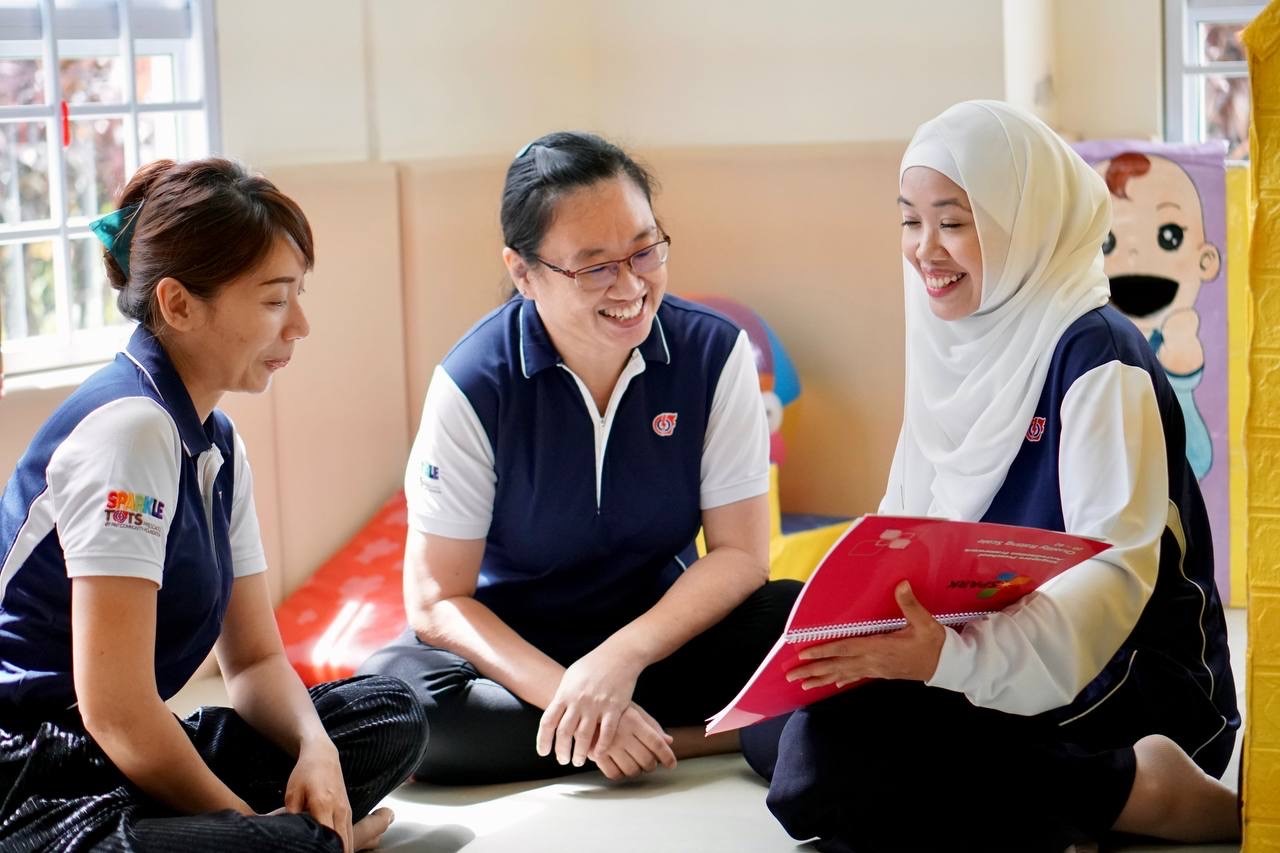
From Cabin to Classroom: Journey of an Outstanding Early Childhood Educator
The PDP modules allowed me to get creative with lesson ideas and keep up with the ever-changing Early Childhood sector.

Ms Farhana Binte Mohamed Hassan
Early Years Educator - PCF Sparkletots @ Pioneer Block 987D (CC)
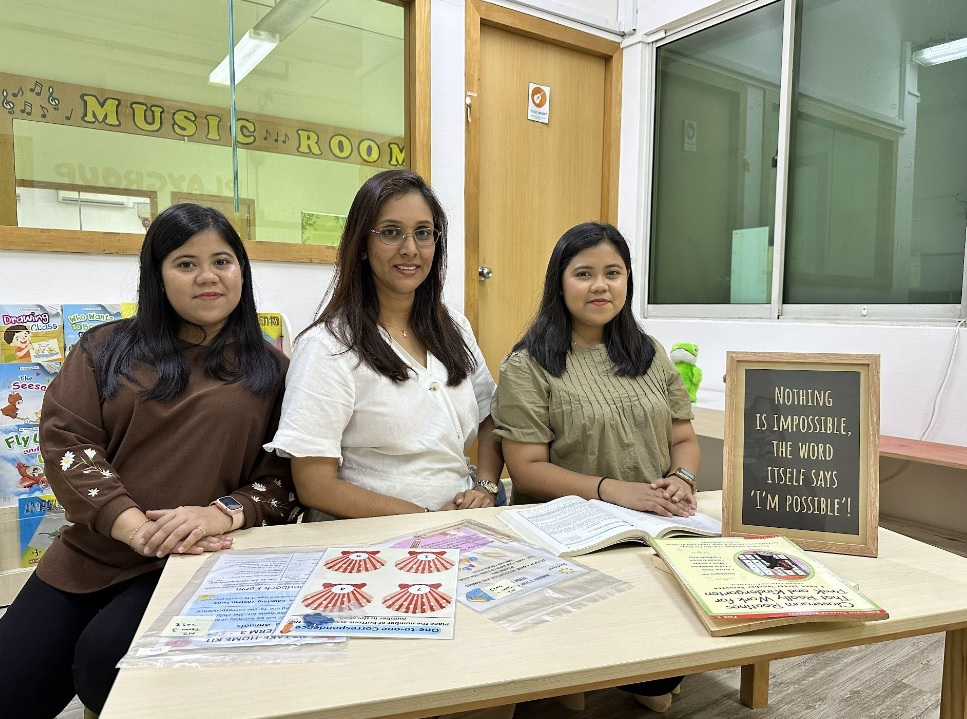
Translating Passion to Profession: Angelene, Nurziana and Sharidah's Voyage in Early Childhood Education
PDP has undoubtedly deepened the skill sets and enriched the expertise of exemplary educators such as (Nur)Ziana and Sharidah

Ms Jegatheswary
Cluster Head at Sunflower Preschool
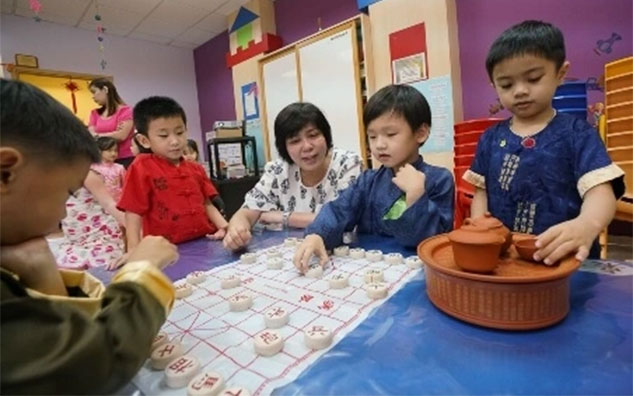
An Unwavering Passion
You need to have a passion for children, and I don’t mean just teaching them, but caring for them as well
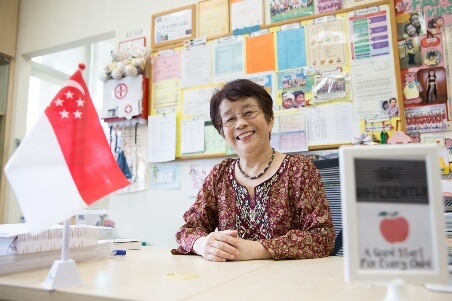
Mrs Elsie Yee
Principal - Faith Kindergarten